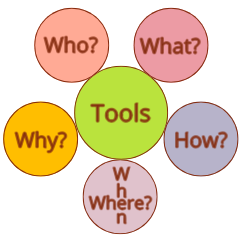Dialog/Help — a dialog
Help — a dialog
V 1 — It's been a week now, R, and you're still messing around with all this Help stuff. Don't you know no one reads Help-pages?!?
R 2 — I know. Usually, I don't read them myself. We think we're supposed to know it. And if we don't know it, they should have been clever enough to make it that we don't need to know it. But that's not really what they do.
V 3 — What do you mean? Doesn't it make sense to cultivate an intellectual ergonomics in which we design communication systems for maximally efficient human use, cutting out the extraneous, simplifying the essential, assuring a positive outcome for all? Whew! I actually said it, one breadth.
R 4 — Ah, you know my liking for "perhaps." Here in A Place to Study we try to interest ourselves in things for their own sake. Now I recognize that practitioners have become preoccupied with using linguistic expression to produce consequences and that theorists obsess with explaining those uses with the concept of performativity. I think it has become dangerously one-sided.
V 5 — How so? Or maybe I can guess. You are going to say that it all loses track of the temporal relativity of language uses, or something like that, overly abstracting how language serves us in living life.
R 6 — Yes. Our lives take place in our actual present. Used there prospectively, looking ahead to future possibility, utterance cannot be performative, but at most contingently intentional. Used in the present retrospectively about past occurrences, utterance cannot be performative, but at most potentially explanatory. As I see it, language does not instantiate action, it instantiates thought.
V 7 — OK, this is interesting but I'm not sure how to link it up with your interest in the Help stuff here. Are you suggesting the Help stuff is more important on a site for persons engaged in thinking together seriously than on most social software?
R 8 — Well, yes. I've sort of surprised myself with that view. I object to a lot of social software, more strongly I feel exploited and betrayed in using it. It seems engineered to reduce the space of thought and to replace it with a space of virtual activity. In using it, one fills in boxes rather than thinking through and expressing one's ideas. The design makes it easy to do a few. rather simple things—to post pictures, to state what you've been doing, to like (or now on Facebook in its tsunami of nuance, also to love, to haha, to wow, to sad, and to angry), to find friends, to swill at the news feed, to puff your cause, and so on. It is all designed to occupy us in routine, reactive activity, holding us as sitting ducks for targeted ads and messaging while putting minimal strain on our creative capacities.
V 9 — I get the point. To think clearly and communicate substantively takes sustained effort and the acquisition of skill and style. A site like A Place to Study should support our doing so.
R 10 — Exactly. But doing so presents challenges. It takes more than clear how-to instructions.
V 11 — How so? Let's add concise to clear and I should think you have it nailed—we should give clear and concise how-to help.
R 12 — I'm not favoring muddy, long-winded help, but you started by observing that nobody reads help, even clear and concise help. Maybe that means that our knowing how to do X, Y, or Z isn't people want in the way of help.
V 13 — Hmm. You're right, I guess, that people don't read help because it is unclear and verbose, but because somehow it isn't what they want. I'm a bit puzzled to say what it is that they want.
R 14 — Yeah. Let's take our critique of social software seriously. If it is all a matter of reducing communication to a set of easy actions, making language as an instantiation of action, we will click the link, check off the options, fill in the box, and upload the file to see what happens. If that mystifies us, we may check the instructions, and if it doesn't it's on to the next thing.. But if communication instantiates thought, then the problem of facilitating it on, in through, and by a place to study becomes a problem of our helping ourselves to form and express our hopes and ideas, our feelings, convictions, and reasons.
V 15 — This opens a flood of questions! Does it transform a place to study into a house for instruction? Aren't you undercutting your own democratic aspirations for the site?
R 16 — That is a risk, but one we must face up to. Persons come to A Place to Study with a prior history, which none of us can wish away our own or that of anyone else. Thus each of us comes to the site, or the place of any other human experience, having to contend with the inescapable problems of our human condition in the inimitable way required by the unique actuality of the particular life each of us is living.
V 17 — As you put if, we are instantiating thought here, not action. I had better hear you out on this, holding questions until I understand your full thought better.
R 18 — Good. Whether young and old, poorly or highly schooled, all the endless particulars unique to each person color the distinct ways in which we experience the fundamental problems of communicating our thought. We seek to study these we attend to them in our efforts to communicate effectively. We try to think clearly what we want to say and we seek to feel empowered to express well—accurately and persuasively—what we want to get across.
V 19 — Yeah. Sometimes in conversation I get down on myself thinking "that was what I said but not what I meant," and sometimes I've got good words but I have trouble getting them out in a way that someone will pay attention to them and understand.
R 20 — Right. To manifest thought verbally we need to cloth it in the words that mean what we mean and we need to adjust those words so that what another will take them to mean corresponds to what we intend them to mean. And it is not a step-wise sequence, but a continuous process.
V 21 — I get it—in thinking about the second side I often recognize that the words I started out with aren't really the ones expressing what I mean and I adjust both what I have to say and how I intend to say it. But what does all this have to do with online help?
R 22 — Well, we've been talking about language, not as a structure or system with identifiable, objective features—a grammar, lexicon, and syntax—that work thus and so, some looming monolith. We've been talking about it rather as a medium, as an intermediary that we seek to use intentionally to bring the ineffable actuality of our thinking into our own awareness and then to call it to the awareness of others so that it can interact with the ineffable actuality of their thinking.
V 23 — So, we are talking about a medium, but what significance does that have for developing help resources for the people working on A Place to Study?
R 24 — Let me finish. We are talking about a medium and a medium is not an objective thing outside of us, but a field for our expressive agency in which we are a part, immersed within it. A Place to Study too is a part of this field of agency, as well as everyone doing anything on or around it. In other words, the assistance we seek and can use is not simply with our specific site, but something much more encompassing. And it is very new, for all we know quite unprecedented in its affordances, and subject to rapid transformations. We need help, less in doing things with a specific software program, and more in working with it in relation to the encompassing medium and to pursuing our intentionality within that.
V 25 — Wow! This seems to change the game a bit. Can you give a specific or two about what should go into the help resources on A Place to Study in light of this understanding of the task?
R 26 — Sure. To begin with, it is a bit unusual to start our help resources with this discussion itself. I think it suggests several important points. First, mastering the medium is and will be a lifelong process. Second, however great our virtuosity with this or other programs becomes, we will still have to make difficult judgments—what new skills should I acquire, what old ones should I set aside and forget, what potential ones should I ignore, how do I keep my capacities commensurate with my intentions for their use. And third, we activate help resources through study, inquiry, clicking the ëdit"or "view source" links and then trying to understand what has brought an interesting effect about, be it cool or a glitch.
V 27 — Doesn't this put a damper on the aspiration to make self-formation and liberal learning accessible to all persons? It seems to put a premium on a really broad and deep understanding of digital communications.
R 28 — It sets a high bar for each person's self-formation and liberal learning, but it would be pandering not to do so—we live complex lives in a complicated world. But we set no bar impeding entry. Each person can engage their self-formation only from their achieved state of self-development and for each that is an ongoing process. Neither expertise nor immaturity are permanent states of being—the young mature and acquire capacity; the mature age, tire, their skills risk stagnation, and sooner or later they pass away.
V 29 — But what about those whose formal schooling served them poorly and have had few subsequent opportunities for self-development?
R 30 — To start a long journey, we must begin from where we are, and the journey of life ends in death—what's interesting in it is what we do along the way. We need help at the point where our palpable ignorance constrains our felt intentions. Great help resources will have something that each can use to reduce those constraints that bind them.
V 31 — That sounds great, but I think people need some specifics. Wikipedia's Cheat Sheet is the least common denominator of that, helpful in getting started. But you've convinced me we need to address our needs more generally. Let's think about that and talk again soon about how we might address them more concretely.





